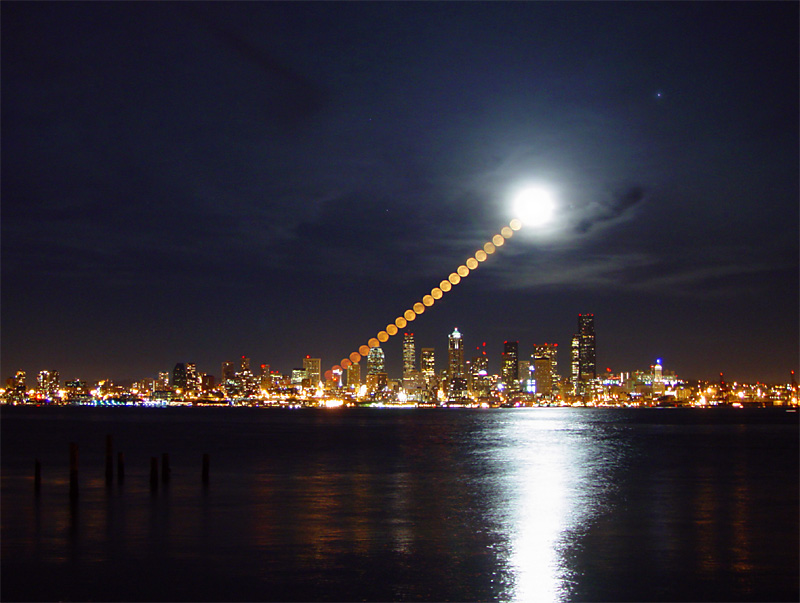One trend in particular has reached the boiling point for me of late, and that is the way people casually toss around the word GENIUS, particularly in describing someone that they/we know, à la "My boyfriend is a genius" or "My daughter is a genius."
Before we go any further, let's be FRIENDS!
Nobody in the game of football should be called a genius. A genius is somebody like Norman Einstein.
- Joe Theismann, Quarterback
Sorry, what I meant to say was, before we go any further let's get a definition of the word GENIUS on the table for reference. From Webster's Revised Unabridged Dictionary (emphasis mine):
Genius implies high and peculiar gifts of nature, impelling the mind to certain favorite kinds of mental effort, and producing new combinations of ideas, imagery, etc. Talent supposes general strength of intellect, with a peculiar aptitude for being molded and directed to specific employments and valuable ends and purposes. Genius is connected more or less with the exercise of imagination, and reaches its ends by a kind of intuitive power. Talent depends more on high mental training, and a perfect command of all the faculties, memory, judgment, sagacity, etc. Hence we speak of a genius for poetry, painting. etc., and a talent for business or diplomacy.Now, because I'm no genius, here's some anecdotal evidence as to what actual geniuses and those that are pretty smart have to say about it:
also
Distinguished mental superiority; uncommon intellectual power; especially, superior power of invention or origination of any kind, or of forming new combinations.
The first and last thing required of genius is the love of truth.
- Johann Wolfgang von Goethe
Talent hits a target no one else can hit; Genius hits a target no one else can see.
- Arthur Schopenhauer
No great genius has ever existed without some touch of madness.
- Aristotle
I mean, we obviously have nothing in common. I'm a genius, you're all fucking wankers.
- Martin Hannett (in 24 HOUR PARTY PEOPLE)
Over at Mensa, they are very specific about the kind of people they consider for membership: potential members must score within the top 2% (above the 98th percentile) of any approved standardized intelligence test and, in America at least, pay the $52 a year membership fee. That said, they don't use the word "genius" in any of their literature.
So who is a genius?
Here's more from Catharine Morris Cox's 1926 dissertation on geniuses:
In 1916, Stanford University psychologist Lewis M. Terman, Ph.D., classified an IQ score of 140 or higher as "genius or near genius", a classification that is no longer used. Ironically, one of the first practical applications of IQ tests was to identify children who were mentally handicapped, not gifted. Alfred Binet, the French psychologist who developed The Binet-Simon Intelligence Scale in 1905, which Terman would later revise and use to identify gifted children, was dismayed by this subsequent application of his test. Today, not only have high IQ scores become used to identify children for gifted programs, but in popular parlance have become equated with genius. This is very unfortunate since, as we shall see, the relationship between high IQ scores and genius is not always apparent. In fact, history is full of geniuses who more than likely had ordinary IQs.
It's been said that "a sense of timing is the mark of genius", and if that is even close to true, then the so-called geniuses whose paths have crossed with mine have failed the genius test on that criteria alone.
Are you, your boyfriend or your daughter contemplating something so new and heady that it's fair to say the people of Earth have never contemplated it before?
If the noodling in question doesn't fit the GENIUS bill, yet what they're up to is nonetheless pretty compelling, then why not fawn over their TALENT or IMPRESSIVE WORK instead of busting out the G word? Talent is still pretty damn impressive, believe you me, and rarer than you might think.
There's no shame in "only" possessing talent.
In the end, genius is a subjective term; no sure-fire process exists that separates the genius from the enormously talented, and one man's genius is another man's hack. As with pornography, most of us think we know genius when we see it. All I ask is that the next time you're tempted to describe someone as a genius, take a moment and make sure that's REALLY what you mean.

























